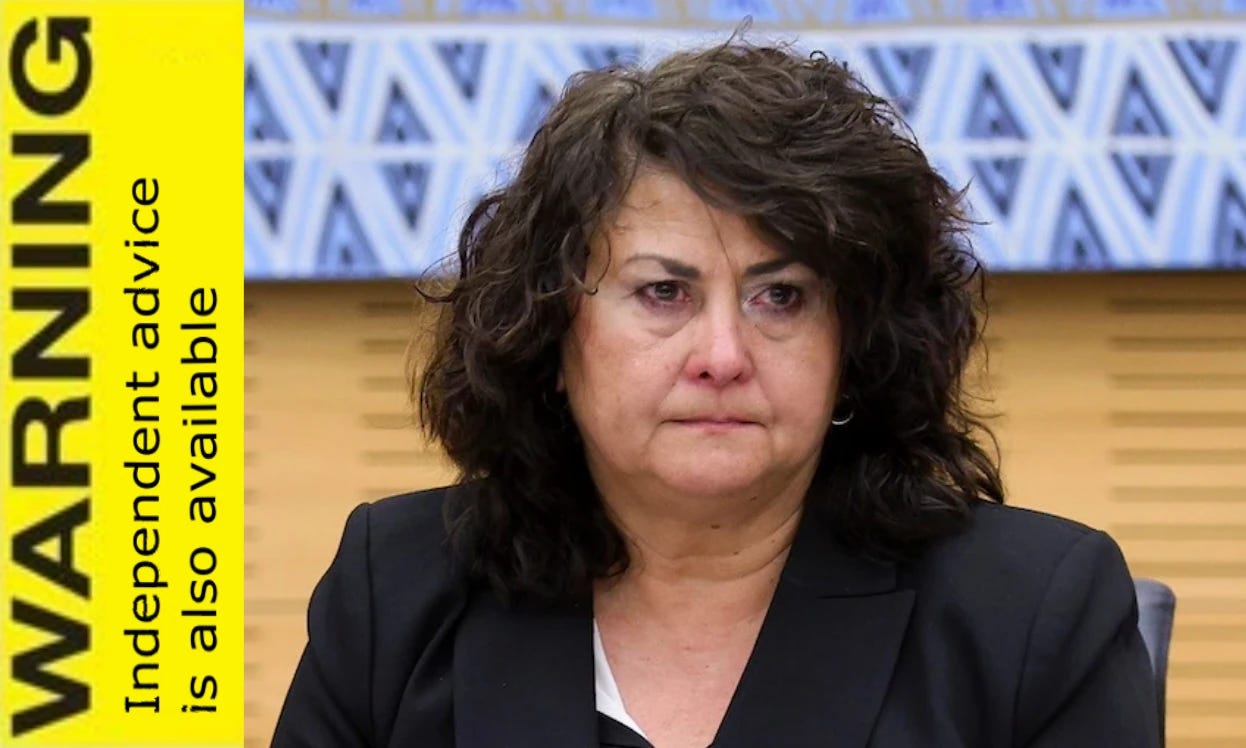Foodstuffs merger declined, so what happens next?
ComCom was worried about the possible impacts on competition and consumers.
Mōrena, and welcome to The Bulletin for Wednesday, October 2.
In today’s edition: The PM fends off questions about the sale of his personal properties, Auckland Transport delays changes to overnight parking, and will New Zealand abandon its climate change targets? But first: Foodstuffs gears up for a possible appeal over merger decision.
Foodstuffs merger declined
I’m back again, thanks to Anna for covering me yesterday morning while I was off sick.
Yesterday morning, reported The Post’s Tom Pullar-Strecker, it was confirmed that the Commerce Commission had declined the application for Foodstuffs’ North and South Island branches to merge into one entity. In comments yesterday, the commission said it was worried that Foodstuffs’ proposal would have had impacts on competition and consumers. “The proposed merger would result in a permanent structural change to the New Zealand grocery industry,” said commission chairperson John Small.
That’s similar to how smaller players in the market felt, reported Aimee Shaw. The New Zealand Food and Grocery Council said that the commission’s decision recognised “the very real concerns of both suppliers and consumers that have been clearly articulated and supported by evidence in the three rounds of submissions and cross-submissions”.
Is this the end of the road?
Foodstuffs has consistently maintained that its merger would not have dampened competition and claimed instead it would have meant cheaper prices at the checkout. "What would change is the way we're governed and operated,” Foodstuffs’ South Island chairperson Russell McKenzie previously claimed. Shareholders – that being store owners – agreed, and voted in favour of the merger. But it was always going to need to pass the hurdle that is Commerce Commission approval.
The watchdog has, under the Commerce Act, the power to enable or reject proposed business mergers based on whether it will “substantially lessen” competition in a market. In an interesting (paywalled) piece for Newsroom Pro, Andrew Bevin looks at how the commission’s latest decision diverges from prior merger rulings by focusing on the “upstream” effects – namely the companies that supply groceries to Foodstuffs.
Foodstuffs is now weighing up its next move and will consider appealing the commission’s ruling, reported Will Mace for the NBR (paywalled). In analysis for the Herald (paywalled), Kate MacNamara argued that it would be surprising if Foodstuffs walked away quietly. “The companies have been hatching the merger plan for several years, and their respective boards have given it considerable time and effort, as has [Foodstuffs North Island chief executive Chris] Quin, who has promoted it as an effort to wring greater efficiencies from the businesses and improve food and grocery prices for customers,” she noted.
Quin said the commission’s decision yesterday amounted to a “press release” and Foodstuffs would be waiting for the full detail to be made public on October 23.
It’s part of a bigger picture
It was always going to be an uphill battle in the current environment. Against the backdrop of the proposed merger, Foodstuffs and its main rival, Woolworths, have been fighting a number of fires on the competition front. Earlier in the week, the North Island branch of Foodstuffs was fined $3.25m for anti-competitive land covenants imposed to try and hinder rivals from opening or expanding stores, reported the Herald’s Anne Gibson. Meanwhile, a few weeks ago, the first annual report into competition in the grocery sector painted a “concerning picture”, explained Stuff’s Brianna McIlraith, finding ongoing dominance by the two large players.
But while Foodstuffs appears unlikely to give up the battle, another suggestion has been floated from an Australian academic following the saga. In comments to the NBR (paywalled), Sydney University researcher Lisa Asher said that Foodstuffs should consider divesting some of the brands operated by the business to encourage locally owned competition in the wider market. Some in Australia have also recently suggested Woolworths sell its New Zealand arm, though that’s less about competition on our shores and more about the brand’s performance across the ditch.
What is the government’s role here?
The Spinoff’s Toby Manhire recently summarised several areas that it appears the coalition parties in government have diverging views on. One that could be added to the list is supermarket competition. Both the PM and National commerce minister Andrew Bayly were quick to welcome the grocery commissioner’s recent report and, reported The Post, appeared in favour of the need for further regulation. But Act’s David Seymour disagreed, reported RNZ’s Craig McCulloch. "It's pretty clear what Act’s position is: we need less regulation and more competition." It has echoes of the recent decision by the government to allow buy now, pay later schemes to avoid certain regulation, with the Herald’s Jenée Tibshraeny (paywalled) floating the possibility that Seymour could try and get his way with supermarkets too.
Support our expanding mahi in the capital
If you value our coverage of all things Wellington, from our maps of bike networks, to local politics, to untold history, consider making a donation or becoming a member today.
Will New Zealand abandon its climate change targets?
Until recently, writes George Driver for The Spinoff this morning, the answer to this question has been a firm “yes”. But over the last few months, when asked about our Paris climate change target, the Y-word appears to have left climate change minister Simon Watts’s vocabulary.
New Zealand has two climate change targets. Firstly, we have a domestic target that’s written into law and requires New Zealand to reach net-zero carbon emissions by 2050. Then there is the international target we signed up to under the 2016 Paris Agreement.
George writes:
This one’s even harder to get your head around. It’s what’s called a gross-net target. It uses our gross emissions in 2005 as a baseline, and pledges to cut our net emissions to 50% below that level by 2030. Net emissions are our greenhouse emissions, minus the carbon absorbed by forests – but, confusingly, under this target only the carbon absorbed by post-1990 forests is counted.
It’s this target that’s looking distinctly shaky.
The PM’s property portfolio pulled into political debate
“Let’s be clear, I’m wealthy and I’m sorted,” said Christopher Luxon on Newstalk ZB yesterday morning.
The prime minister has been fending off questions about the recent sale of two of his personal properties – an Onehunga house and his Wellington apartment. It’s become news as Luxon moves into the recently renovated residence Premier House in the capital. But the focus has been on the capital gains made by the prime minister, reported the Herald’s Thomas Coughlan. Luxon bought the Wellington apartment when investment transactions were subject to a five-year bright-line test – a not-quite capital gains tax that taxes the gain someone makes on a property if it is sold within a certain time period.
On coming into office, Luxon’s government shifted the bright-line test back to two years, meaning Luxon avoided a hefty tax bill that would have applied if he’d sold it prior to July 1 this year. And, as we all know, New Zealand doesn’t have a capital gains tax either. Labour’s Carmel Sepuloni told 1News the PM was in a “conflicted position” and should be open to a conversation about “a more progressive tax policy”.
Home Education, a new docu-series from The Spinoff
From a dahlia farm to a house bus, six families have found their own ways of educating their children at home. Our documentary series follows these kids and their parents as they contend with the challenges and joys of education outside the bounds of a traditional classroom.
Episode one premieres Tuesday 8 October on The Spinoff.
Made with the support of NZ On Air.
Click and Collect
Auckland Transport delays changes to overnight parking in the CBD until December at the earliest.
Select committee fails to clarify who should pay for climate adaptation.
In developing news this morning, Iran has fired a salvo of ballistic missiles at Israel.
More than 70% of teachers who participated in a te reo Māori teaching training programme that’s now been cut say it supported their ability to apply tikanga and te reo Māori in educational settings.
Decision on new Interislander ferries taking longer than expected, risk of more breakdowns remains.
For something different, I found this Vanity Fair essay by Rudy Giuliani’s daughter a very interesting read: “Trump took my Dad from me”.
Toby Manhire presents the Casey Costello guide to the school holidays. The government is in a big hurry to pass the Crown Minerals Amendment Bill, explains Gabi Lardies, which will repeal the oil and gas exploration ban. Alex Casey watched Christopher Luxon watch the World of Wearable Art. Auckland Council’s new noise restrictions on a popular underage music venue are symptomatic of wider issues within the scene, reports Lyric Waiwiri-Smith. For the latest in the Cost of Being series: a high-earning renter who feels like he’s “only treading water”.
That’s it for this morning, thanks for reading. I’ll catch you back tomorrow.
Want to get in touch? Join the conversation in the Substack comments section or via email at thebulletin@thespinoff.co.nz if you have any feedback on today’s top stories (or anything else in the news).
If you liked what you read today, share The Bulletin with friends, family and colleagues.
















Super weird that Luxon's press secretary has quit given that he keeps coming out with these absolute winner statements.
> In an interesting (paywalled) piece for Newsroom Pro, Andrew Bevin looks at how the commission’s latest decision diverges from prior merger rulings by focusing on the “upstream” effects – namely the companies that supply groceries to Foodstuffs.
This is great news. Hopefully the Commerce Commission is watching what Lina Khan's FTC are up to in the state, and learning lessons.